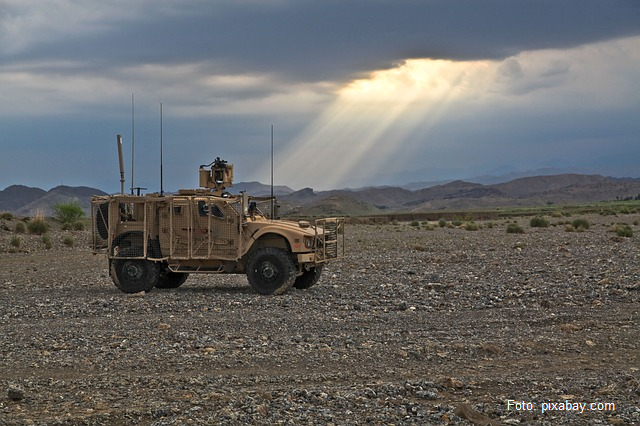Afghanistan – 20 years after
Less than 2 weeks were necessary before the Taliban took control of Afghanistan, in mid-August, as the foreign military deployed there for the past two decades pulled out.

Corina Cristea, 10.09.2021, 15:16
Less than 2 weeks were necessary before the Taliban took control of Afghanistan, in mid-August, as the foreign military deployed there for the past two decades pulled out.
Sent to Afghanistan shortly after the 9/11 attacks in the USA, American and other NATO allied troops completed their mission, and with the withdrawal of the foreign military, celebrated by Islamist militants as a victory, the situation spiralled, raising even more questions regarding the future of that country and more. Was this development predictable at all? Military analyst Radu Tudor tells Radio Romania that it was:
Radu Tudor: “It was entirely foreseeable, and unfortunately a mission that I personally have seen as a success for over 20 years, a mission originally conducted under American command, Enduring Freedom, and which then also involved NATO and UN participation and coordination, a successful mission that dismantled and drove out of Afghanistan the al-Qaida terror organisation, a mission that led to the killing of Osama bin Laden, the mastermind of the 9/11 attacks which killed nearly 3,000 innocent people in the US, well, this successful mission, which brought relative stability to Afghanistan and gave that country struggling with medieval realities a chance of becoming a modern state, hit into a very poorly made pull-out plan. Into decisions that neither the Trump administration nor the Biden administration have analysed thoroughly, which generated very strong emotions. And we can feel these emotions ourselves, when we see the footage broadcast by all television stations and websites in the world. I believe what we see now is the unfortunate ending of a very difficult, very necessary mission, a mission with good results in terms of stabilising Afghanistan. In fact, the concern of the international community with the resurgence of the Taliban and their rise to power proves that what NATO and the US did for the past 20 years in Afghanistan was a good thing. But the mission could not go on, not only because of the huge human, military and financial costs, but also because the idea that Afghanistan should take its fate in its own hands had to prevail.
“President Joe Biden could have said that by end of September 2022 I want zero troops in Afghanistan. But until that time I want to make sure that we have a political settlement between the government and the Taliban and that we have also evacuated all our employees and local partners, said a former member of the government ousted by the Taliban, Nargis Nehan, who sees the pull-out as “irresponsible. “The US have been in Afghanistan for 20 years, staying one more year longer wouldn’t have made any difference for them, at least financially as well as politically, Nehan told AFP, 6 days after fleeing the country. Nargis Nehan deplored the waste of over 2,000 billion in international investments, as well as the bloodshed: “the sense of abandonment experienced by many Afghans would foster a sense of grievance against the international community. “That’s my fear… we’ll see much more extremism coming from Afghanistan, Nehan said, explaining that it would be fuelled out of poverty, and out of that feeling of betrayal and grievances that they have.
On the other hand, the US secretary general Antonio Guterres warns against “a humanitarian catastrophe looming, and speaks about a deepening humanitarian and economic crisis and the threat of basic services completely collapsing. The UN chief mentions that “almost half of the population of Afghanistan — 18 million people — need humanitarian assistance to survive. “Now more than ever, Afghan children, women and men need the support and solidarity of the international community, Guterres insisted.
The Taliban vowed to guarantee the security of the humanitarian teams and the access of aid into Afghanistan, but they also promised a regime that will be acknowledged by the international community and the Afghan people. In their first press conference since taking power, a Taliban spokesman said freedom of the media and the rights of women will be complied with, within the framework of Islamic law, although they provided no details as to what that means in practice.
After the US deployed troops in Afghanistan in 2001, the restrictions against women relaxed, and even as the war continued, an internationally supported local commitment to improve womens rights led to new protection measures. In 2009, a law aiming to fight violence against women criminalised rape and forced marriages, and made it illegal to prevent women and girls from working or studying. Today, the women and girls of Afghanistan fear that they will lose the rights gained in 20 years and that they will never be regained, in spite of Taliban promises that “schools will be opened, and girls and women will go to school as students and teachers.
Meanwhile, Europe expects a wave of Afghan migrants that would put pressure on its capacities. The memory of 2015, when Europe faced a huge illegal migration wave triggered by the war in Syria, is still very vivid. And even if the situation will not be exactly the same, Europe needs to be prepared. And to stay alert, amid fears of a possibly high terrorist risk after the Taliban took power. (tr. A.M. Popescu)






























